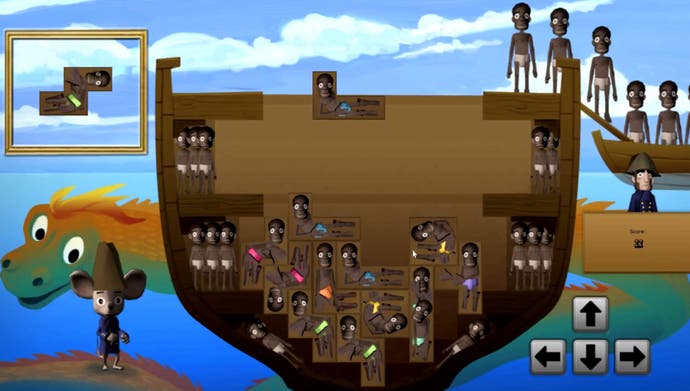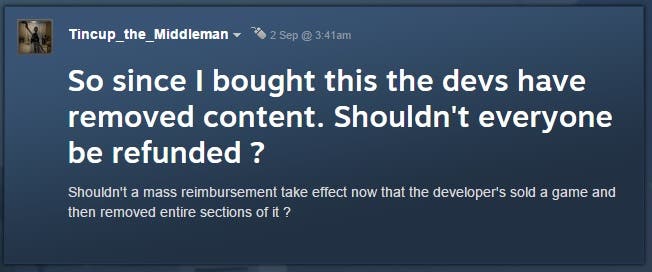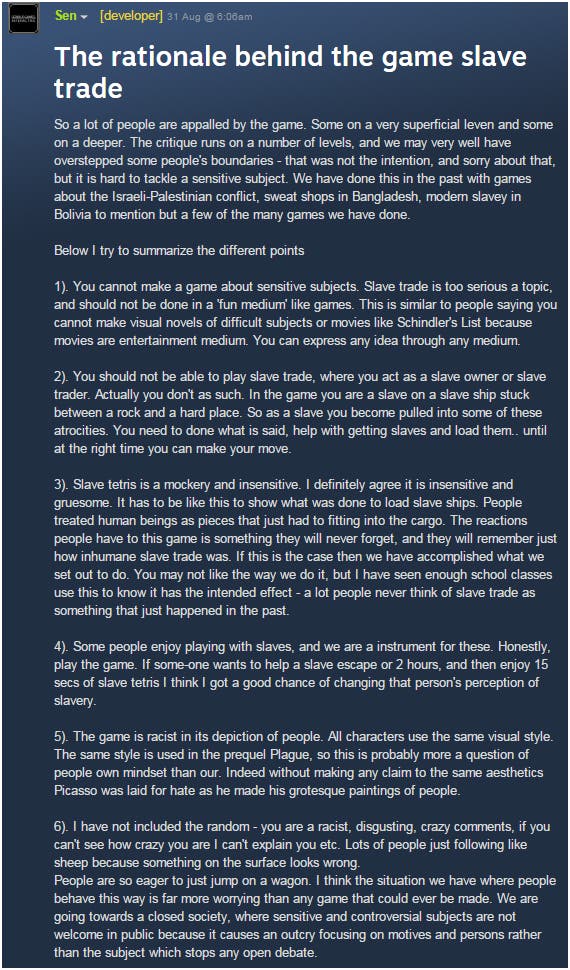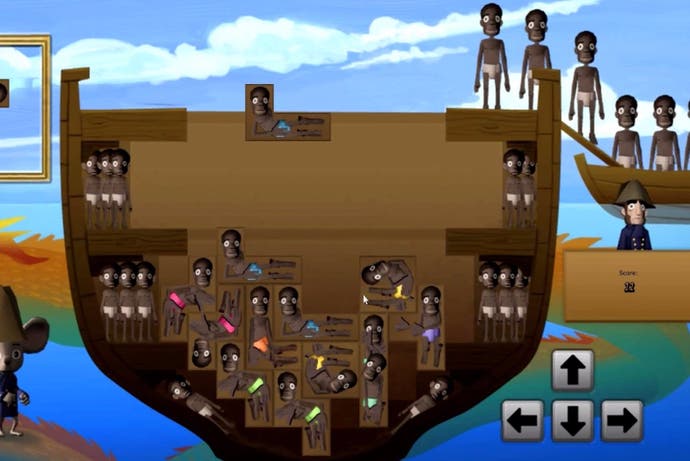"Slave Tetris" pulled from Steam game after social media backlash
And now people are demanding refunds.
A "Slave Tetris" mini-game has been removed from a Steam game following a social media backlash.
"Slate Tetris", a mini-game in Playing History 2 - Slave Trade, sees the player attempt to "think like an old-school slave merchant" and pack as many slaves as possible into the hold of your ship. The slaves are shaped like Tetris blocks. You can see how it works in the video, below, by Jim Sterling.
Last weekend a number of people reacted in anger to Slave Tetris. Many suggested it was, at best, an inappropriate way of educating kids about slavery. On Twitter the game was called "dehumanising" and "sick".
The furore prompted its developer, Danish studio Serious Games Interactive, to remove the mini-game from Playing History 2 - Slave Trade, which launched on Steam in September 2013, as well as its trailer.
Playing History 2 - Slave Trade is the latest in The Playing History game series, which, according to the description offered by Serious Games, "revolves around experiencing engaging and personal stories set in exhilarating points in world history".
The developer points out the series is intended to "put the student in the middle of important and interesting points in history".
"The learning process is autonomously conveyed throughout the story of the game as it progresses, this occurs through decisions and actions taken by the player throughout the course of the game," Serious claims.
"This kind of interaction is a unique learning method, which encourages the player to relate to the world and actively seek out knowledge."

In Slave Trade you "travel back in time and witness the horrors of slave trade firsthand". You work as a young slave steward on a ship crossing the Atlantic, and serve the captain as "his eyes and ears".
"What do you do, when you realise that your own sister has been captured by the slave traders?" the game asks.

A number of UK media publications picked up on the social media response to Slave Tetris, including ITV, the Daily Mail and the Metro, the latter of which carried the headline: "Is 'Slave Tetris' the most offensive 'educational' game for children ever?"
In a post on Slave Trade's Steam page, Serious Games said the social media outcry had "overshadowed" the educational goal of the game.
"Apologies to people who was offended by us using game mechanics to underline the point of how inhumane slavery was. The goal was to enlighten and educate people - not to get sidetracked discussing a small 15 secs part of the game."
Reaction on Steam has been mixed, with some demanding a refund now Slave Tetris has been removed from the game.


Simon Egenfeldt-Nielsen is CEO of Serious Games Interactive. He worked as an assistant professor at IT-University of Copenhagen on games and learning projects for five years before founding Serious Games Interactive in 2006. He has served on the Digital Game Research Association Board for three years.
Egenfeldt-Nielsen appears to have deleted his Twitter account having defended the game over the weekend, but he has posted on Slave Trade's Steam page to explain his position and encourage those who want their money back to use Steam's refund system.



